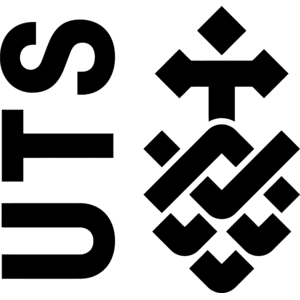It shouldn't be. Why smart business analysts steer clear of tech work.

Opinion article by Dr Andrew Lancaster
Working as a business analyst is technically not an information technology (IT) role. Although data is essential for business analytics, the IT tasks required to make data usable – such as database management and software development – are usually performed by specialised IT professionals.
The role of Business analysts is to interpret data, identify business needs, and propose solutions. They may collaborate with IT staff to ensure data is available to support analytics. But they should normally not be programming, configuring systems, or managing network issues.
Role of the Business Analyst
A business analyst (BA) identifies inefficiencies and areas for improvement in a company's operations. They analyse data to spot trends and use these insights to enhance decision-making.
BAs connect data with strategic actions. They use their analytical expertise to facilitate operational improvements. This often involves collaborating with IT departments to ensure data is being collected and is easily accessible to users like them.
A key task for BAs is to connect analytical insights to organisational behaviour. They communicate the meaning of their analytical findings, linking them to company performance. A good BA is able to illuminate leaders on what changes could improve the bottom line.
Related: Business Analyst: Job Description, Role and Skills
What Various Data Professionals Do
The table highlights the distinct role of business analysts, contrasting their work with the jobs of data analysts, data scientists, IT specialists, database administrators.
Table 1. Responsibilities and Skills of Data Professionals
| Role | Main Responsibilities | Key Skills | Data Interaction |
|---|---|---|---|
| Business Analyst | Identify inefficiencies and improvement areas; Use data to enhance strategic planning | Analytical thinking, communication | Interprets data to improve processes and inform decisions |
| Data Analyst | Collect, process, and perform statistical analyses on large datasets; Report findings | Statistical analysis, detail-oriented | Handles raw data and extracts actionable insights |
| Data Scientist | Build models to predict and solve complex problems; Use data to create algorithms | Machine learning, programming | Uses sophisticated data modeling techniques |
| IT Specialist | Manage IT resources and infrastructure; Ensure data security and support data accessibility | Technical troubleshooting, networking | Maintains and secures data infrastructure |
| Database Administrator | Oversee database management; Optimise database performance and ensure data integrity | Database management, system administration | Manages and optimises databases |
We can see that, while there is plenty of IT work to do, business analysts have a non-IT role.
- Business analysts identify and report data patterns of operational significance.
- Data analysts handle, process, and analyse datasets to extract insights and report findings.
- Data scientists develop predictive models and algorithms to address complex problems.
- IT specialists oversee tech infrastructure, ensuring data security and accessibility across networks.
- Database administrators manage databases for data integrity and smooth operations.
Business and data analysts have superficially similar roles. However, data analysts are not expected to formulate business strategies or influence decision-making directly. Data analytics is about providing the data in a clear and actionable format. There is a purer focus on numbers and trends.
Data science differs from business analytics in its focus on deep technical skills like programming and complex model-building. It’s more demanding, requiring long hours to develop algorithms that can innovate and enhance business models. It is more removed from company decision-making.
Related: Business Analytics vs Data Science
Do Business Analysts Need IT Skills?
A high level of IT proficiency is not essential to work in business analytics; a business degree is sufficient to become an analyst. Essential skills include data analysis expertise, communication abilities, knowledge of business intelligence tools, and understanding the perspectives of decision-makers.
Nonetheless, having some IT skills is beneficial for a career as a business analyst. Indeed, some analysts enter this field with just an IT degree, demonstrating that it can be built on a technical skills foundation.
Without any IT skills, analysts might struggle to engage effectively with IT professionals they depend on. They may reach erroneous conclusions due to a lack of understanding of data transformation issues. Importantly, they could find themselves in situations where strong IT support is not available.
UTS Online - Graduate Certificate in Business Analytics
The Graduate Certificate in Business Analytics from UTS Online is a dual pathway to become a business analyst. The business stream is for those with an IT and engineering background. You develop business skills by studying subjects from accounting practices to customer value and data ethics. The IT stream gears business professionals towards technical proficiency. Students explore enterprise systems, databases, and data processing. The 100% online course can be completed in 8 months of part-time study, with optional continuation into a Master of Business Analytics degree.
RMIT Online - Graduate Certificate in Business Analytics
The Graduate Certificate in Business Analytics from RMIT Online is for professionals from any field. This eight-month, part-time program includes three core subjects: Data Ethics and Regulation, Business Decision Analytics, and Data Processing Using SAS. Students also choose one elective connected to specific business functions such as marketing or supply chain management. This program structure provides foundational analytical skills and a pathway to masters degrees.
UNSW Online - Graduate Certificate in Analytics
The UNSW Online Graduate Certificate in Analytics introduces business analytics with a flexible curriculum. Over eight months, students complete four courses from a selection of 14 options. These cover a range of topics such as introductory data analysis, decision making, and predictive analytics. Specialisations are available in General Analytics, Marketing Analytics, and Human Resource Analytics. The course is open to professionals from different backgrounds and articulates into a Graduate Diploma and Master of Analytics.
Related: How to Become a Business Analyst in Australia
Why Business Analysts Should Avoid IT
If you are really suited to being a business analyst, my advice would be to move away from IT work fairly early in your career. While an information technology foundation is good and beneficial, this area of work can be limiting.
I found being immersed in data and coding very different from, say, sitting in the boardroom canvassing spending ideas. The skills required and mentality are vastly different. The former is cool, logical, and mathematical; the latter is about storytelling, message simplification, and charisma.
Moreover, people are inclined to think of you as either a strategist or a data nerd. And rare are the people who can effectively present themselves as both.
If you can persuade people with data without doing data work all day long, that is a more exciting and potentially rewarding line of work. Someone who can help steer a business within an industry is generally more valuable and harder to replace than someone who crunches data. This especially so when AI is set to take over coding and other technical tasks.
Related: 12 Business Analytics Jobs Examples





